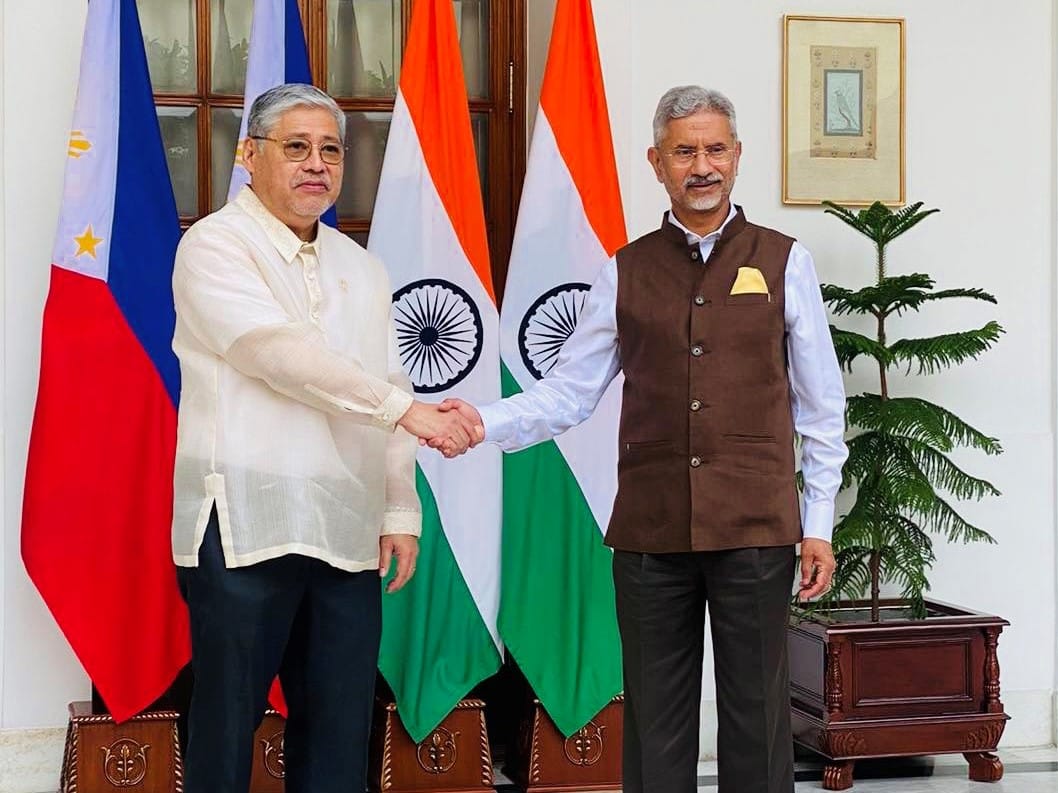[ad_1]
An India-Philippines joint statement final month has prompted a stir. Subrahmanyam Jaishankar, India’s Foreign Minister, and his Filipino counterpart, Enrique Manalo, issued a joint assertion on 29 June calling for China to abide by the 2016 arbitral award on the South China Sea. It sparked a flurry of commentary within the media speculating a shift away from India’s long-standing neutrality on competing territorial claims in Southeast Asia. While India has lengthy supported norms enshrined within the UN Convention on the Law of the Sea (UNCLOS), some specialists identified, this was the primary time that New Delhi had explicitly known as on China to heed the arbitral tribunal’s 2016 ruling.
The improvement – though vital – must be seen in perspective. A joint assertion by nations looking for improved ties follows diplomatic follow. Not occasionally, one facet pushes the opposite to take positions the latter will not be completely snug with however is probably open to contemplating because the matter is deemed a core curiosity by its accomplice. This is commonly the case with Southeast Asian states and their companions in Asia and Europe.
When the G-7, the Quad, and the European Union expressed their support for the Philippines’ claims within the South China Sea final month, for example, some member states have been cautious of the prospect of riling China. Yet, they stated what needed to be, realizing full properly that China would object. It did. Beijing slammed the transfer, terming it a blatant interference in its inner affairs.
Not occasionally, one facet pushes the opposite to take positions the latter will not be completely snug with.
It’s not as if geopolitics is the only real issue influencing the implementation of guidelines and norms within the South China Sea. Countries within the Indo-Pacific have a respectable curiosity in sustaining maritime peace and stability. Many regard the UNCLOS ideas of freedom of navigation, overflight, and unhindered commerce as important for regional commerce. As a agency proponent of a rules-based maritime order, India has sought to develop its maritime presence within the Indo-Pacific area, together with within the Western Pacific, the place Indian naval forays and operational workout routines have grown incrementally.
India has additionally developed shut ties with Southeast Asian nations such because the Philippines, which not too long ago signed a contract with New Delhi for the availability of three batteries of the Brahmos missile. Vietnam, one other of India’s shut companions within the area and a beneficiary of a $100 million line of credit score to obtain high-speed patrol boats, is about to obtain a stealth warship, the INS Kirpan, from the Indian navy.

Yet drafting a joint declaration with the Philippines is more likely to have been a tough proposition for Indian officers. In the wake of India-ASEAN naval drills within the South China Sea in May, there was already hypothesis that Indian reservations about difficult Chinese unreasonable claims in Southeast Asia had begun steadily dissolving. At this juncture, some Indian officers are more likely to have argued {that a} joint assertion favouring Manila would detract from India’s neutral stance on the South China Sea disputes. Even so, China’s assertive posturing within the waters of the Philippines is more likely to have compelled Indian coverage planners to conform to a reference to the 2016 arbitral tribunal as a type of diplomatic pushback to China.
This is about so far as New Delhi might be prepared to go on the matter. For three causes, Indian decision-makers are more likely to proceed to be cautious concerning the contests within the South China Sea.
First, India isn’t a celebration to regional disputes and doesn’t need to meddle in affairs that don’t instantly concern it. For all its rhetoric on norms and a rules-based order, New Delhi stays clear-eyed concerning the prices of Indian interference within the waters east of Malacca.
If India have been to take care of a distance from the South China Sea – an area Beijing considers a strategic yard – likelihood is Beijing will respect India’s sphere of affect within the Indian Ocean.
Second, Indian policymakers know Beijing operates from a place of energy, the place it has bodily management over some islands within the South China Sea. Possession of those options provides Beijing the flexibility to exert strategic management over disputed territories, using roughshod over the claims of different regional states.
Third, and maybe most significantly, India is eager to protect steadiness with China within the Indo-Pacific area. India’s political elite realise that China is a a lot stronger navy energy with a major presence within the Western Pacific and the Indian Ocean. If India have been to take care of a distance from the South China Sea – an area Beijing considers a strategic yard – likelihood is Beijing will respect India’s sphere of affect within the Indian Ocean.
With a rising trade through the Malacca and Singapore Straits and oil pursuits off the coast of Vietnam, India’s stakes within the Western Pacific are primarily financial. New Delhi is aware of it has little capability to challenge sustained energy within the South China Sea. India’s occasional joint statements with pleasant ASEAN powers invoking maritime norms in Southeast Asia are meant solely to sign to China that India received’t intrude within the regional littorals if Beijing respects Indian redlines within the Himalayas and the Indian Ocean.
That could be the prudent factor to do. India’s core maritime pursuits lie within the Indian Ocean, the place China’s increasing footprint is but to cross a important threshold. If China begins to encroach on India’s strategic house within the Andaman Sea, New Delhi will surely be compelled to reply throughout a wider swath, together with presumably within the South China Sea. Until then, India received’t probably revise its safety posture within the littorals east of Malacca.
[adinserter block=”4″]
[ad_2]
Source link